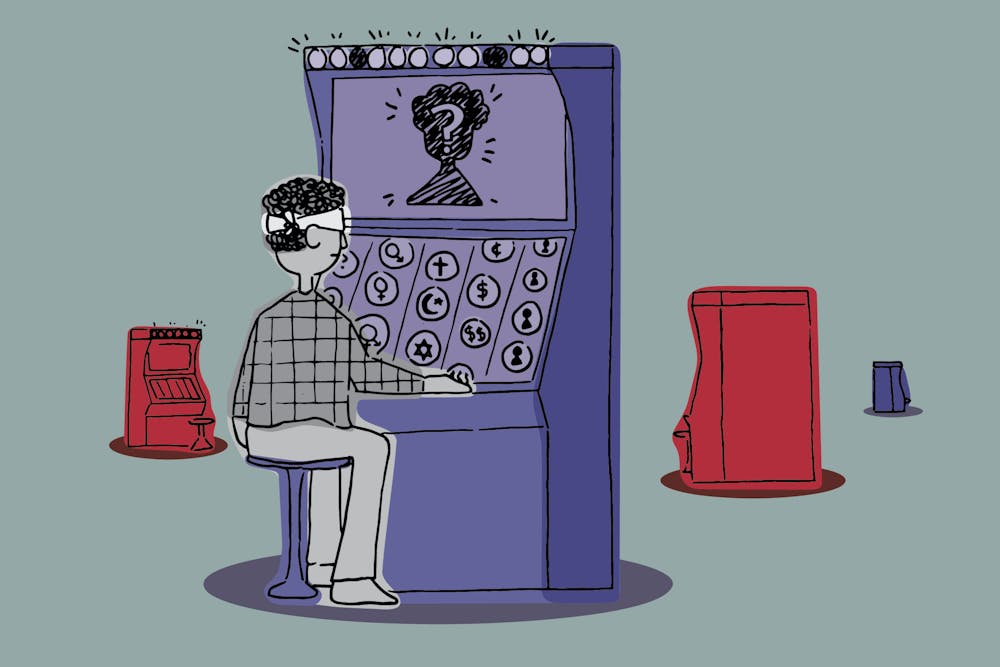Imagine a scenario where you have a strong grasp of politics, economics and other factors that inform your voting decisions. You have the ability to shape the kind of society you want to live in. The catch is, you don’t know anything about your identity, blocking your knowledge of how you might be treated in this society. This is the veil of ignorance, a thought exercise devised by philosopher John Rawls. And when applied, it can influence your policy preferences. For undecided voters who have yet to be drawn to a candidate, it’s a process they should explore.
In a race like the 2024 presidential election, the two candidates have defined themselves as drastically different options, representing opposing visions for the country and contrasting qualities in character. For the estimated 20 percent of the voting population who have not aligned with a candidate and are able to be swayed, there’s still something missing.
Decided voters that are either in the Trump camp or Harris camp made their decision for a number of reasons; some stick to their party line with no further research, some gravitate to the energy campaigns bring and some follow specific policies that directly impact their livelihoods and vote accordingly. If none of these reasons resonate with undecided voters, taking identity out of the equation can provide answers and lead to more objective outcomes.
When we explore candidates’ proposed policies, we naturally consider how they will affect us individually; issues ranging from health care policy to economic policy will appeal to voters differently, as there will be varying outcomes in factors like their access to resources or financial security. But voters who, even with all the available information on Harris’ and Trump’s proposed policies, still cannot settle on a decision should think about their wider impact.
The veil of ignorance is a mechanism to do exactly that. When you remove your personal biases and consider the effects of having different identity traits in society, voting can become more straightforward in terms of promoting more equitable outcomes. Stripping back defining pillars of one’s identity including race, religion and socioeconomic status in favor of opening consideration for how outcomes might change can quickly call existing policy preferences into question, as their impacts that were perhaps overlooked become much more relevant.
This ambiguity provides clarity; it brings issues of justice and fairness into the forefront, challenging voters’ preexisting attitudes by urging them to consider factors like distribution of resources and overall well-being of Americans. Assuming a myriad of perspectives makes it more obvious which candidates and their respective policies will lead to the best and most indiscriminate outcomes for society.
Adopting this way of thinking targets the roots of indecision. Many Americans understandably are cynical about their impact in elections and consequently maintain a distance from politics. Others simply don’t care because they don’t realize what’s at stake for themselves. If they’re in a position where they feel indifferent to changes in political leadership and implementation of new policies, considering the position of someone who is more vulnerable to their impact can ignite the ideal of voter efficacy that is often lacking among the disillusioned group.
All voters, decided and undecided alike, have a civic duty to express their preferences through elections. Voting is an important way to effect change in terms of individual interests, but it’s also important as a voter to challenge their current perspectives to be more informed, especially in a high stakes election. As November 5 quickly approaches, undecided voters are running out of time to inform their preferences. With their current methods of engaging in politics proving to be inconclusive, reframing their perspective through the veil of ignorance should be explored.



